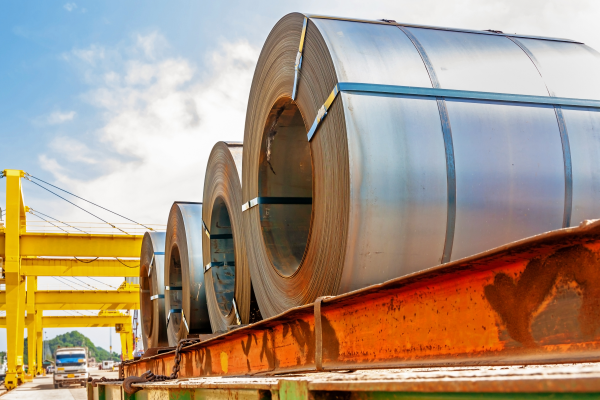Egypt’s Ministry of Industry has announced a new package of incentives to support and expand local production of cold rolled, galvanized, and pre-painted steel sheets and coils.
The initiative is designed to attract private investment, increase domestic production capacities, enhance Egypt’s competitiveness in both regional and global markets, reduce import dependence, expand exports, and support downstream industries that rely on steel sheets and coils as critical inputs.

Key incentives for investors
The package provides a wide range of measures to lower barriers and accelerate project implementation for steel producers:
- Competitive industrial land pricing with priority allocation for new steel projects.
- Payment facilities aligned with project implementation schedule.
- Soft financing options for working capital and production line purchases.
- Fast-track licensing, with operating permits issued within 24 hours once documentation is complete.
- Immediate access to utilities, including electricity, water, gas, roads, and communications, to facilitate rapid project implementation.
Additionally, the government will apply prioritized sourcing policies to ensure that local steel mills receive preference in supplying national infrastructure projects, creating a stable domestic market for producers.
Industrial policy vision and strategic sectors
Kamel El-Wazir, deputy prime minister, minister of industrial development and minister of industry and transport, emphasized that these incentives are fully aligned with Egypt’s industrial development vision.
He highlighted the critical role that steel sheet products play in strategic sectors, including home appliances, automotive manufacturing, metal furniture, medical equipment, agricultural machinery, and construction and metal structures.
By encouraging domestic production, Egypt aims to deepen its industrial value chains, enhance export capacity, and create jobs opportunities.
Toward a competitive regional manufacturing hub
The ministry of industry reaffirmed its commitment to continuing the rollout of programs and initiatives that enhance competitiveness and support Egypt’s broader economic transformation.
These efforts fall under the “Made in Egypt - quality and leadership” initiative, which seeks to strengthen domestic industries, promote sustainable growth, and increase the country’s industrial resilience amid shifting global supply chains.
The steel sheet incentive package is expected to act as a catalyst for new private-sector investments, support import substitution, and help Egypt become a key regional player in steel and manufacturing over the coming decade.